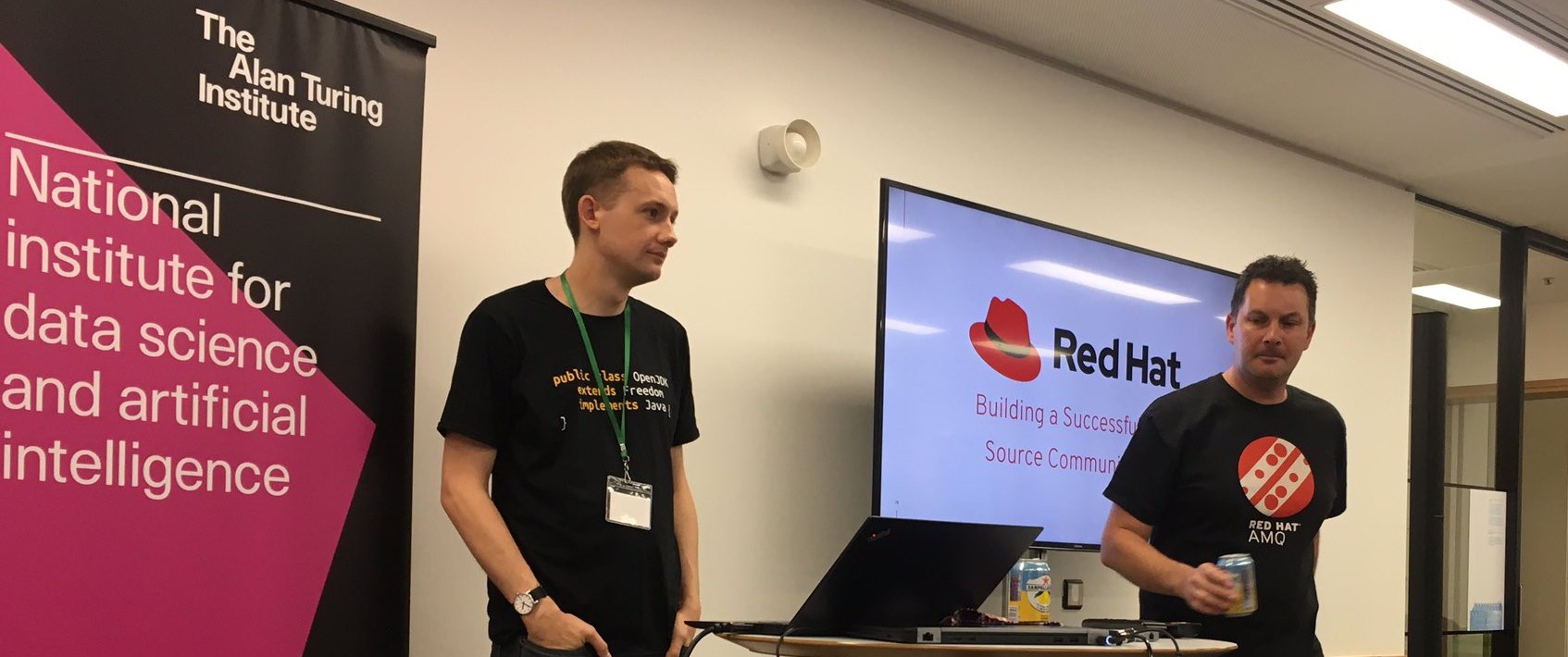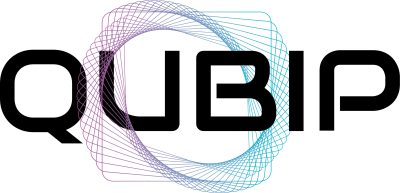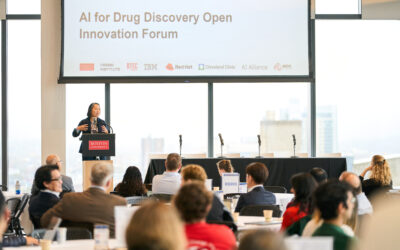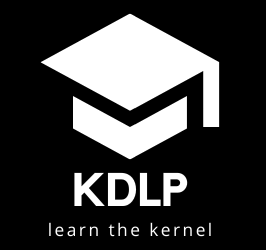In July last year, Red Hat visited the Turing Institute to deliver a two-day workshop on Open Source and why it’s a great choice for academic software. The majority of the schedule was available to members of Turing Institute, however the first day was closed with a public lecture Open source Challenges in the Enterprise by Prof. Mark Little.
Day 1 programme
09:30 – 10:00 Registration
10:00 – 11:00 Introduction: Why open source for data science at the Turing? – Mark Little (Red Hat), Paul Watson (University of Newcastle), James Hetherington (The Alan Turing Institute)
11:00 – 12:00 Building a successful open source community – Red Hat (Simon Woodman and Jonathan Dowland)
12:00 – 13:00 Lunch
13:00 – 13:30 Choosing the right open source licence – Red Hat (Mark Little)
13:30 – 14:30 Open source: a view from another company – Quantum Black
14:30 – 15:00 Coffee break
15:00 – 16:00 Building a business around open source software – Red Hat (Mark Little)
16:00 – 17:00 Case studies of successful open source communities – Red Hat (Rui Vieira and Rebecca Simmonds)
17:00 – 18:00 Reception
18:00 – 19:00 Lecture: Open source challenges in the enterprise – Mark Little (Red Hat)
Day 2 programme
The first part of the day was organised into 4 clinic sessions where Turing researchers presented their projects and discussed their individual challenges with regards open source and community building. Red Hat participants commented on the individual cases. The projects were
- SHEEP – https://github.com/alan-turing-institute/SHEEP
- Machine Learning Julia (MLJ) – https://github.com/alan-turing-institute/MLJ.jl
- Safe Haven (private)
- Simurgh – e.g. https://github.com/alan-turing-institute/bluebird (and others)
The second part was a round-table where we discussed what Red Hat can offer and what might be useful to the Turing.









